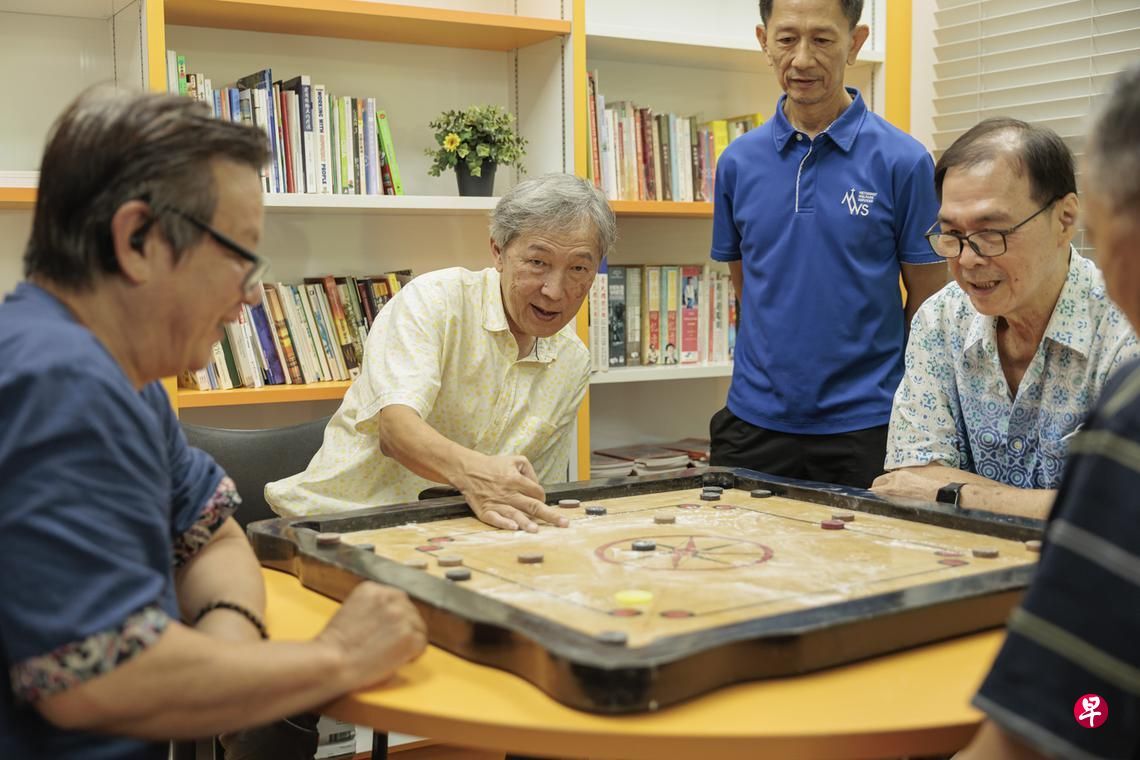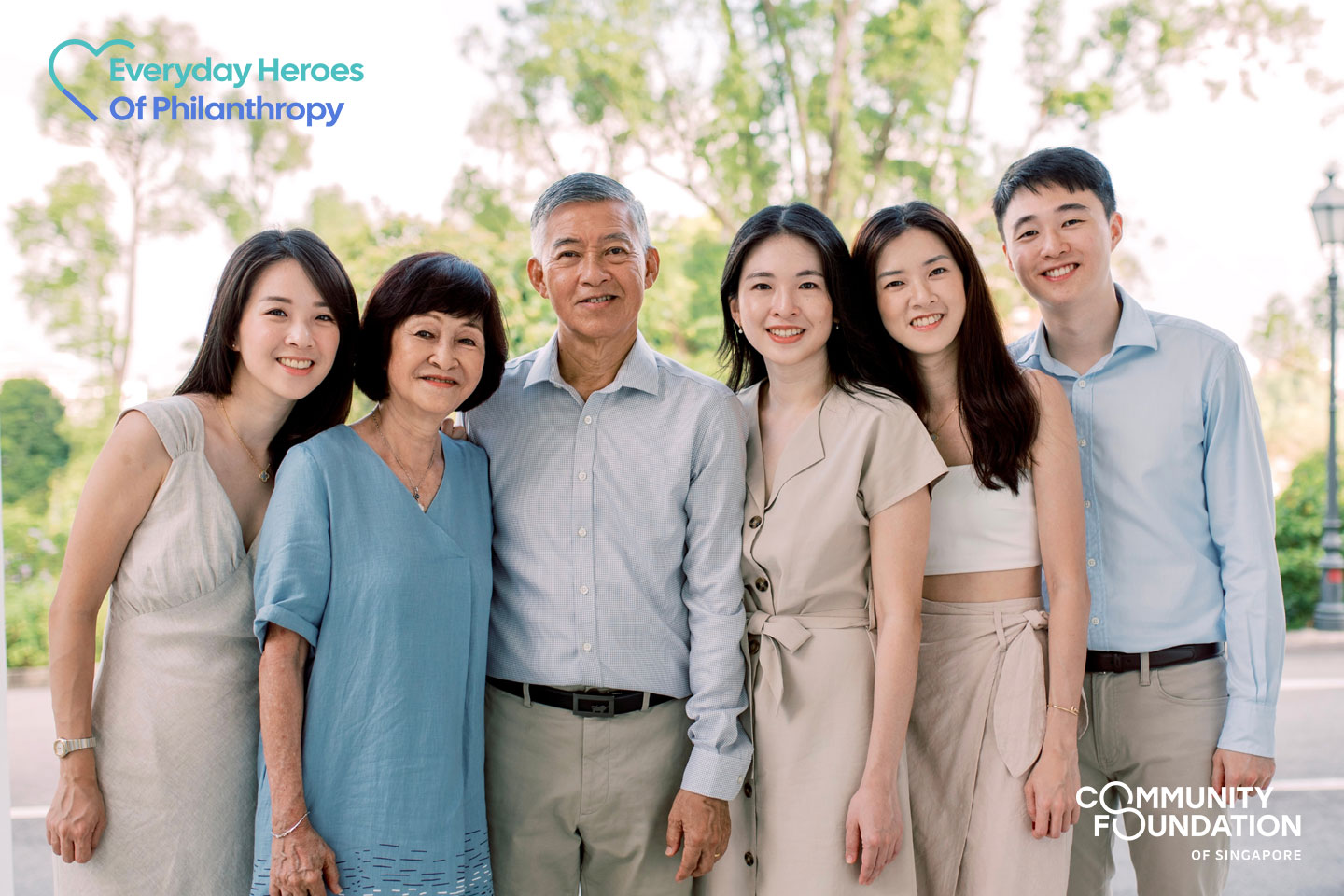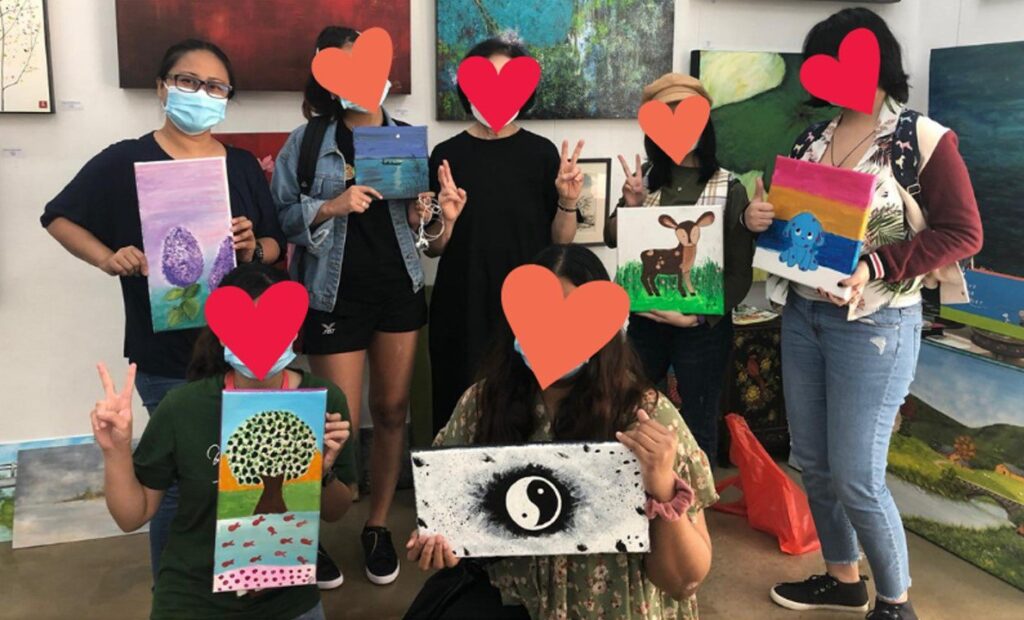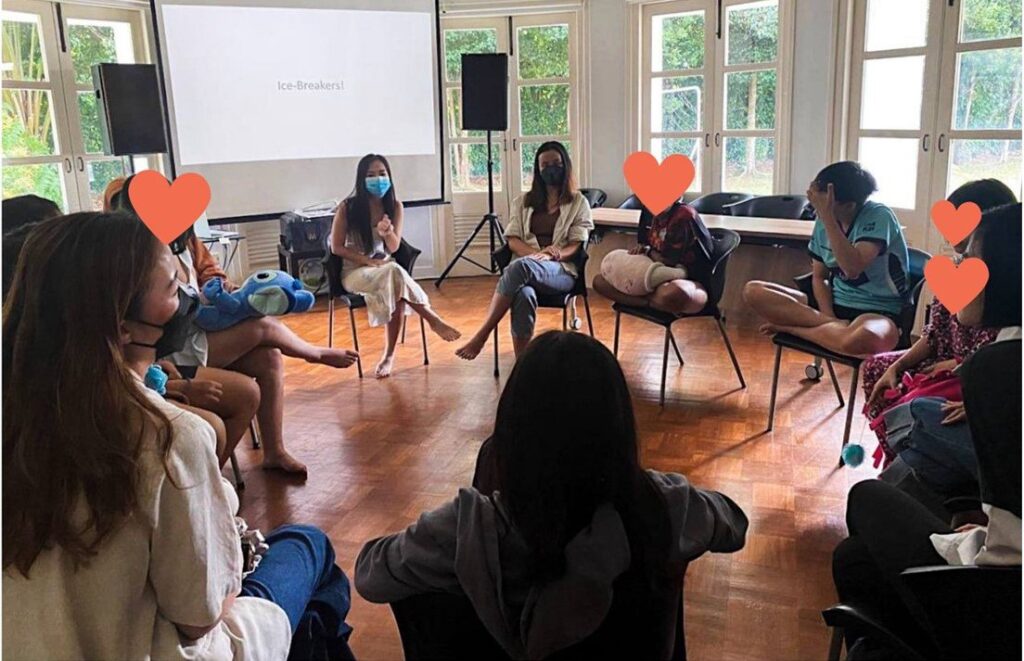Restoring the Mental Health of Girls Who Have Survived Abuse: HCSA Dayspring Residential Treatment Centre

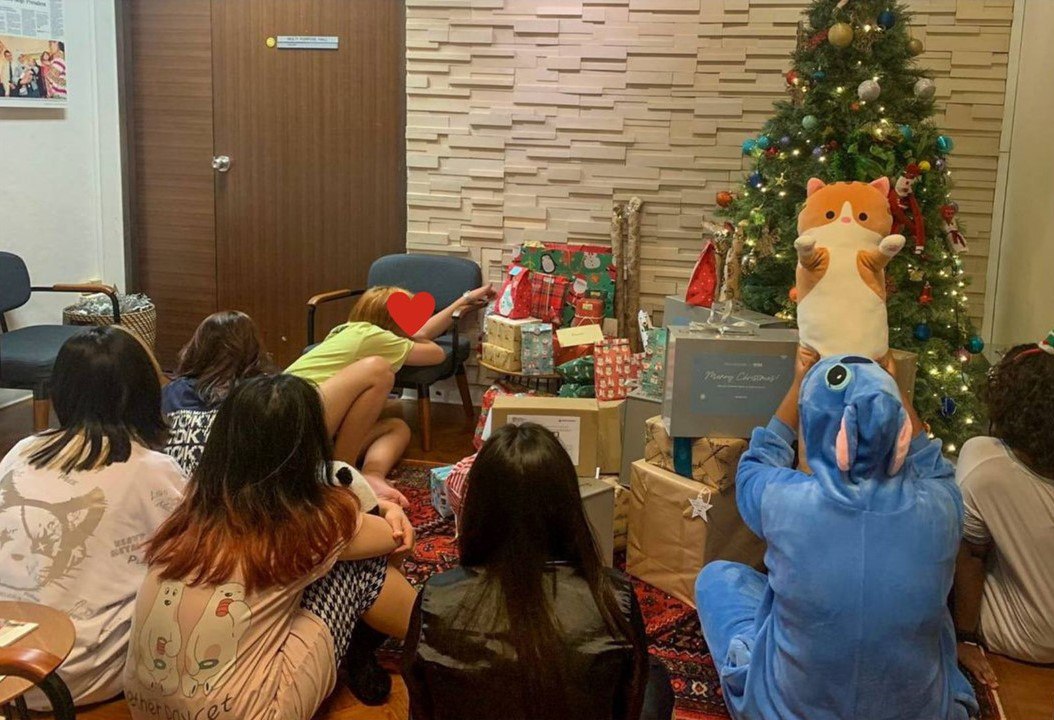
Clara* was just fifteen when she attempted suicide for the first time. She had believed her father’s violence was normal. It was not until she spoke to a psychiatrist that she realised violence and sexual abuse were not something that happened in every family. On her sixteenth birthday, after a second suicide attempt, Clara entered Dayspring Residential Treatment Centre (DRTC).
Our teenage years are when we develop crucial social and self-management skills, a time when the foundation for a successful adult life is laid. Survivors of childhood trauma often grapple with its long-term effects throughout their lives, underscoring the critical need for early intervention.
“Children are precious gems. For the ones who could not grow up in a safe and caring environment, they are placed into therapy group homes like HCSA DRTC. We work in teams to help the girls manage their trauma. I also do whatever simple ways I can in their recovery journey to help them see that the world is not as bad as it seems.”
Sally San Juan, Lead Mentor, DRTC
Child Abuse: A Growing Problem
Regrettably, cases of child abuse have been rising annually for the past decade. In 2021, the Ministry of Social and Family Development investigated 2,141 cases of child abuse, marking the highest number in 10 years.
The majority were cases of neglect, which jumped 143 percent from 375 cases in 2020 to 910 cases in 2021. Physical abuse, usually the most common form of abuse, was the second-highest form of abuse in 2021, and child sexual abuse cases also saw a 70 percent increase in 2021.
HCSA DRTC: Healing Trauma and Nurturing Futures
HCSA Dayspring Residential Treatment Centre (DRTC) was established in 2011 to provide a caring, safe, and therapeutic environment for teenage girls who have suffered neglect, physical, sexual, or emotional abuse.
DRTC’s beneficiaries include girls aged 12-18 assessed by the Ministry of Social and Family Development (MSF) to have moderate to high trauma needs and who are facing persistent difficulties with behavioural and emotional issues.
By employing effective clinical therapies, the centre aims to help these girls become healthy individuals capable of successfully reintegrating into their schools, families, and society.
The girls live at the centre for 12 to 18 months and undergo a clinical programme that comprises three key phases to work through their trauma and restore their mental health.
The initial phase focuses on safety, stabilising the child while building trust and a sense of security. Following this, the regulation-focused treatment aids in teaching coping techniques to manage emotions and behaviours effectively. Finally, the beyond-trauma treatment provides tools to prevent relapses.
A value-based system guides each girl to align her actions with her values and aspirations, empowering her to take charge of her life. When she is ready to graduate, a six-month aftercare programme prepares the girl to rejoin her family, if it is safe for her. If her family home is unsafe, the programme prepares her to live with a foster family or assists her in transitioning to independent living.
An Urgent Need for Capacity Increase
As a certified Trauma Systems Therapy organisation, the most severe cases of complex trauma and abuse are referred by the Ministry of Social and Family Development (MSF) to DRTC.
Owing to the extensive resources and continuous, vigilant care necessary for these cases, MSF has imposed a limit, allowing DRTC to cater to a maximum of 12 girls concurrently. The operational expenses for maintaining this capacity amount to approximately $1.5 million annually.
With the rising number of child abuse cases and the urgent need for specialised trauma treatment services, DRTC is pushing to increase its resident capacity from 12 to 29.
To aid this expansion in services, DRTC will require additional funding and is calling for volunteers to help as befrienders and trainers.
“Caring for these young survivors is not just about healing wounds; it’s about shaping resilient futures,” says Gerard Wong, Senior Executive, HCSA Community Services. “We appeal to the generosity of CFS donors to join hands with us in expanding our outreach, impacting the lives of these young women, and offering them the chance to heal from adversity and rewrite their stories.”
Shining a Light on a Worthy Cause
CFS has supported DRTC since 2020. To date, CFS donors have contributed $70,000 to support the centre’s operating costs. The contributions go towards the salaries of therapists and staff, running costs of the residence, and food for the residents.
As testament to the programme’s impact, Clara says, “Dayspring turned out to be a strong pillar of support, helping me through difficult times in school and with my family. Even when I experienced suicidal thoughts, the staff never gave up on me and remained understanding and patient.”
“Surprisingly, when I saw my father for the first time after entering Dayspring, I was not angry at all. I felt at peace. I realised I had forgiven him. I told him that I believed he was a good person deep down. I understood: it is through forgiveness that we free ourselves and others from the invisible shackles that once held all of us down. This was when I knew how much Dayspring had changed me.”
Clara*
To find out how you can support HCSA DRTC, please contact CFS.
* ‘Clara’ is not her real name. Her full story can be found at The Birthday That Changed My Life.
Clara* was just fifteen when she attempted suicide for the first time. She had believed her father’s violence was normal. It was not until she spoke to a psychiatrist that she realised violence and sexual abuse were not something that happened in every family. On her sixteenth birthday, after a second suicide attempt, Clara entered Dayspring Residential Treatment Centre (DRTC).
Our teenage years are when we develop crucial social and self-management skills, a time when the foundation for a successful adult life is laid. Survivors of childhood trauma often grapple with its long-term effects throughout their lives, underscoring the critical need for early intervention.
“Children are precious gems. For the ones who could not grow up in a safe and caring environment, they are placed into therapy group homes like HCSA DRTC. We work in teams to help the girls manage their trauma. I also do whatever simple ways I can in their recovery journey to help them see that the world is not as bad as it seems.”
Sally San Juan, Lead Mentor, DRTC
Child Abuse: A Growing Problem
Regrettably, cases of child abuse have been rising annually for the past decade. In 2021, the Ministry of Social and Family Development investigated 2,141 cases of child abuse, marking the highest number in 10 years.
The majority were cases of neglect, which jumped 143 percent from 375 cases in 2020 to 910 cases in 2021. Physical abuse, usually the most common form of abuse, was the second-highest form of abuse in 2021, and child sexual abuse cases also saw a 70 percent increase in 2021.
HCSA DRTC: Healing Trauma and Nurturing Futures
HCSA Dayspring Residential Treatment Centre (DRTC) was established in 2011 to provide a caring, safe, and therapeutic environment for teenage girls who have suffered neglect, physical, sexual, or emotional abuse.
DRTC’s beneficiaries include girls aged 12-18 assessed by the Ministry of Social and Family Development (MSF) to have moderate to high trauma needs and who are facing persistent difficulties with behavioural and emotional issues.
By employing effective clinical therapies, the centre aims to help these girls become healthy individuals capable of successfully reintegrating into their schools, families, and society.
The girls live at the centre for 12 to 18 months and undergo a clinical programme that comprises three key phases to work through their trauma and restore their mental health.
The initial phase focuses on safety, stabilising the child while building trust and a sense of security. Following this, the regulation-focused treatment aids in teaching coping techniques to manage emotions and behaviours effectively. Finally, the beyond-trauma treatment provides tools to prevent relapses.
A value-based system guides each girl to align her actions with her values and aspirations, empowering her to take charge of her life. When she is ready to graduate, a six-month aftercare programme prepares the girl to rejoin her family, if it is safe for her. If her family home is unsafe, the programme prepares her to live with a foster family or assists her in transitioning to independent living.
An Urgent Need for Capacity Increase
As a certified Trauma Systems Therapy organisation, the most severe cases of complex trauma and abuse are referred by the Ministry of Social and Family Development (MSF) to DRTC.
Owing to the extensive resources and continuous, vigilant care necessary for these cases, MSF has imposed a limit, allowing DRTC to cater to a maximum of 12 girls concurrently. The operational expenses for maintaining this capacity amount to approximately $1.5 million annually.
With the rising number of child abuse cases and the urgent need for specialised trauma treatment services, DRTC is pushing to increase its resident capacity from 12 to 29.
To aid this expansion in services, DRTC will require additional funding and is calling for volunteers to help as befrienders and trainers.
“Caring for these young survivors is not just about healing wounds; it’s about shaping resilient futures,” says Gerard Wong, Senior Executive, HCSA Community Services. “We appeal to the generosity of CFS donors to join hands with us in expanding our outreach, impacting the lives of these young women, and offering them the chance to heal from adversity and rewrite their stories.”
Shining a Light on a Worthy Cause
CFS has supported DRTC since 2020. To date, CFS donors have contributed $70,000 to support the centre’s operating costs. The contributions go towards the salaries of therapists and staff, running costs of the residence, and food for the residents.
As testament to the programme’s impact, Clara says, “Dayspring turned out to be a strong pillar of support, helping me through difficult times in school and with my family. Even when I experienced suicidal thoughts, the staff never gave up on me and remained understanding and patient.”
“Surprisingly, when I saw my father for the first time after entering Dayspring, I was not angry at all. I felt at peace. I realised I had forgiven him. I told him that I believed he was a good person deep down. I understood: it is through forgiveness that we free ourselves and others from the invisible shackles that once held all of us down. This was when I knew how much Dayspring had changed me.”
Clara*
To find out how you can support HCSA DRTC, please contact CFS.
* ‘Clara’ is not her real name. Her full story can be found at The Birthday That Changed My Life.
- Related Topics For You: CHILDREN, DONOR STORIES, MENTAL WELLBEING, STORIES OF IMPACT, YOUTH
